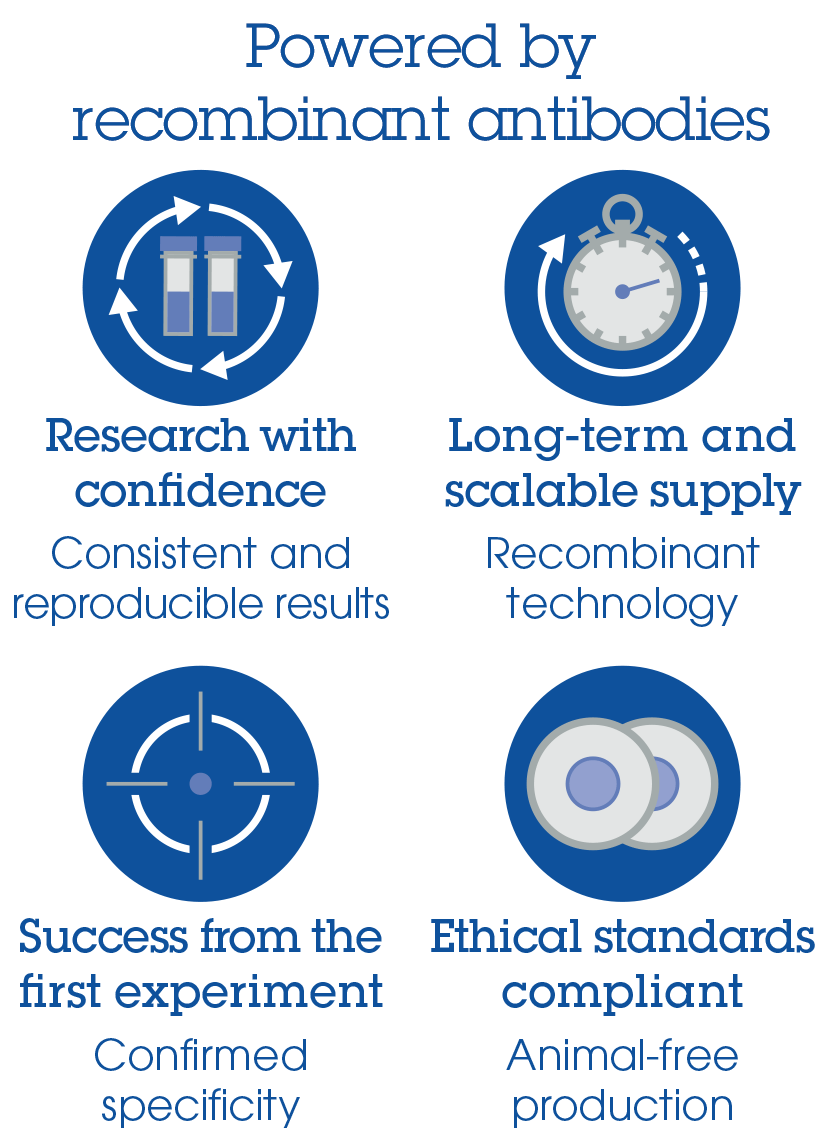Rat Retinol Binding Protein 4 ELISA Kit (ab203362)
Key features and details
- One-wash 90 minute protocol
- Sensitivity: 3.07 pg/ml
- Range: 13.3 pg/ml - 850 pg/ml
- Sample type: Cell culture supernatant, Plasma, Serum, Urine
- Detection method: Colorimetric
- Assay type: Sandwich (quantitative)
- Reacts with: Rat
Overview
-
Product name
Rat Retinol Binding Protein 4 ELISA Kit
See all RBP4 kits -
Detection method
Colorimetric -
Precision
Intra-assay Sample n Mean SD CV% Overall 5 3.3% Inter-assay Sample n Mean SD CV% Overall 3 2.7% -
Sample type
Cell culture supernatant, Urine, Serum, Plasma -
Assay type
Sandwich (quantitative) -
Sensitivity
3.07 pg/ml -
Range
13.3 pg/ml - 850 pg/ml -
Recovery
Sample specific recovery Sample type Average % Range Cell culture supernatant 116 109% - 126% Urine 104 103% - 105% Serum 113 107% - 116% Cit plasma 100 91% - 106% -
Assay time
1h 30m -
Assay duration
One step assay -
Species reactivity
Reacts with: Rat
Does not react with: Sheep, Goat, Cow, Pig -
Product overview
Rat Retinol Binding Protein 4 ELISA Kit (ab203362) is a single-wash 90 min sandwich ELISA designed for the quantitative measurement of Retinol Binding Protein 4 protein in cell culture supernatant, serum, urine, and plasma. It uses our proprietary SimpleStep ELISA® technology. Quantitate Rat Retinol Binding Protein 4 with 3.07 pg/ml sensitivity.
SimpleStep ELISA® technology employs capture antibodies conjugated to an affinity tag that is recognized by the monoclonal antibody used to coat our SimpleStep ELISA® plates. This approach to sandwich ELISA allows the formation of the antibody-analyte sandwich complex in a single step, significantly reducing assay time. See the SimpleStep ELISA® protocol summary in the image section for further details. Our SimpleStep ELISA® technology provides several benefits:
- Single-wash protocol reduces assay time to 90 minutes or less
- High sensitivity, specificity and reproducibility from superior antibodies
- Fully validated in biological samples
- 96-wells plate breakable into 12 x 8 wells stripsA 384-well SimpleStep ELISA® microplate (ab203359) is available to use as an alternative to the 96-well microplate provided with SimpleStep ELISA® kits.
-
Notes
Retinol-Binding Protein 4 (RBP4) is a small, highly conserved member of the lipocalin superfamily involved in the transportation of retinol (Vitamin A) in blood. Synthesized in hepatocytes and adipocytes, RBP4 is also an adipokine involved in insulin resistance in the AG4KO mouse model. Elevated serum levels of RBP4 are seen in obesity and Type 2 diabetes.
-
Platform
Microplate (12 x 8 well strips)
Properties
-
Storage instructions
Store at +4°C. Please refer to protocols. -
Components 1 x 96 tests 10X Rat RBP4 Capture Antibody 1 x 600µl 10X Rat RBP4 Detector Antibody 1 x 600µl 10X Wash Buffer PT (ab206977) 1 x 20ml Antibody Diluent 4BC 1 x 6ml Plate Seals 1 unit Rat RBP4 Lyophilized Recombinant Protein (ab109146) 2 vials Sample Diluent NS (ab193972) 1 x 50ml SimpleStep Pre-Coated 96-Well Microplate (ab206978) 1 unit Stop Solution 1 x 12ml TMB Development Solution 1 x 12ml -
Research areas
-
Function
Delivers retinol from the liver stores to the peripheral tissues. In plasma, the RBP-retinol complex interacts with transthyretin, this prevents its loss by filtration through the kidney glomeruli. -
Involvement in disease
Defects in RBP4 are a cause of retinol-binding protein deficiency (RBP deficiency) [MIM:180250]. This condition causes night vision problems. It produces a typical 'fundus xerophthalmicus', featuring a progressed atrophy of the retinal pigment epithelium. -
Sequence similarities
Belongs to the calycin superfamily. Lipocalin family. -
Cellular localization
Secreted. - Information by UniProt
-
Alternative names
- OTTHUMP00000020114
- OTTHUMP00000020115
- OTTHUMP00000020116
see all -
Database links
- Entrez Gene: 25703 Rat
- SwissProt: P04916 Rat
- Unigene: 108214 Rat
Images
-
SimpleStep ELISA technology allows the formation of the antibody-antigen complex in one single step, reducing assay time to 90 minutes. Add samples or standards and antibody mix to wells all at once, incubate, wash, and add your final substrate. See protocol for a detailed step-by-step guide.
-
Background-subtracted data values (mean +/- SD) are graphed.
-
The concentrations of RBP4 were measured in duplicate and interpolated from the RBP4 standard curve and corrected for sample dilution. The interpolated dilution factor corrected values are plotted (mean +/- SD, n=2).
-
To learn more about the advantages of recombinant antibodies see here.








